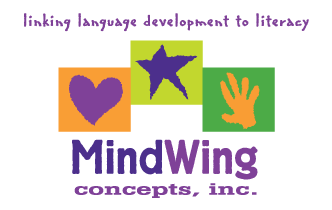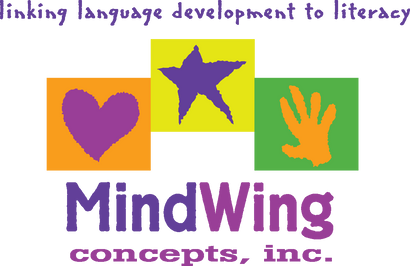Menu
-
- Home
-
About Us
-
The Approach
-
Linking Language & Literacy
-
MindWing Learning
-
Learning Resources
-
SHOP
-
Blog
-
- About MindWing
- Our People
- Contact Us
- Your Account
- Login
-
Spain (EUR €)

Tech Tuesday/Summer Study Series: An Evidence-Based Approach to Building Inferential Skills through Narrative Texts
May 29, 2019 3 min read 2 Comments
This summer we are bringing back the “Summer Study Series!” This series of posts will provide overviews of recent research related to narrative language and Story Grammar Marker® in order to give you “food for thought” to digest relevant to clinical techniques in the upcoming school year.
I was quite excited to discover that a recent study on developing inferential language has a direct connection to SGM®, as MindWing’s icons were used in story mapping activities included as part of the studied intervention. Dawes, Leitao, Claessen and Kane (2019), developed and studied a specific intervention sequence for improving inferencing in students with Developmental Language Disorder (DVD). Some summarized points from the study are as follows:
- The researchers define inferencing as “being able to go beyond what is explicitly said by making links” and identify different kinds of inferences—local and elaborative, the former related to the text itself and the latter regarding the larger context or world knowledge.
- Further segmenting kinds of inferences, we can consider causal, relating specifically to story grammar, evaluative, relating to judgments of morality or behavior, and informational, relating to generalities of setting and prior knowledge.
- Previous studies have found gradual developmental improvement in inference, with typical students gaining approximately 15% in accuracy of response to inferential questions per year in ages 3-4, 4-5, and 5-6. Additionally, gains were isolated in ages 4-5 around questions related to problem, internal response and prediction, and in ages 5-6 around goal, attempts and resolution.
- The researchers emphasized that inferential skills relate not only to reading comprehension and academic growth but to social cognition skills such as play and conversation.
- The study reviews previous research on inferencing while emphasizing that this is one of the first studies focusing on shared book reading as a context for intervention.
-
37 students with DVD ages 5-6 in Australia were recruited for the intervention that took place twice a week for 8 weeks, four sessions per book. The intervention involved specific books (see link below) and scripted questions and mapping activities per book. The study suggests general principles which will assist in applying these findings to other contexts: focus on discourse level, use dialogic book sharing with systematic questioning and a range of types of inference questions, incorporate theory of mind discussion regarding thoughts, feelings and behaviors, practice think-alouds and connections to real life, utilize meta-narrative story mapping and graphic organizers along with scaffolding for inference formation, select stories with clear narrative structure, and repeat-read stories.

- The study created and incorporated two assessment tools available for the iPad; these were used for pre- and post-measurements and may be of interest. See Squirrel Story Assessment and Peter and the Cat Assessment (there’s your tech tie-in).
- Specific procedures for each session with four books are available for download (for free!!!) at the link below. The study found a post-treatment mean gain of approximately 5 points among the students, and this gain was maintained. The researchers acknowledged a) that 2 students showed no gains, but were observed to have difficulty with listening and attention and b) students did not generally grow in literal comprehension through the intervention. The suggestion was that literal and inferential comprehension are distinct skills, but it should be noted that intervention questions focused much more strongly on inferential questions over details from the stories (outside of story grammar elements).
 As mentioned, the entire curriculum (which provides a good overview of the study if you don’t have access via the link above) can be downloaded from here. NOTE: the author has apparently removed link for viewing/download. This document outlines the four books used, macrostructure analyses corresponding with SGM®, scripted questions, and prediction activities. I’d suggest also that the SGM® iPad App or Magnet Sets would be very useful in replicating the ways that the researchers presented the narrative icons.
As mentioned, the entire curriculum (which provides a good overview of the study if you don’t have access via the link above) can be downloaded from here. NOTE: the author has apparently removed link for viewing/download. This document outlines the four books used, macrostructure analyses corresponding with SGM®, scripted questions, and prediction activities. I’d suggest also that the SGM® iPad App or Magnet Sets would be very useful in replicating the ways that the researchers presented the narrative icons.
Check it out and I hope it will be useful in your next school year. A consideration can be that for older students, you can develop a similar series of lessons with other books according to the principles outlined and the question models.
2 Responses
J G
October 01, 2019
The link for the report and the curriculum doesn’t show up when I click on the link.
Leave a comment.
Comments will be approved before showing up.



Webmaster
October 01, 2019
Thank you for notifying us. The author apparently has removed the document for viewing/downloading.